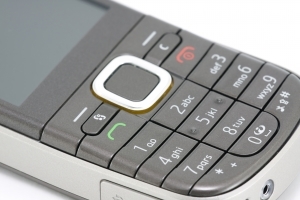 As part of the increased regulatory focus on the mobile marketing space, the Federal Trade Commission (FTC) brought suit against Jesta Digital, LLC, better known as Jamster, alleging mobile telephone bill “cramming” in violation of the FTC Act and other applicable laws. “Cramming” is the act of placing unauthorized charges on a consumer’s telephone bill – in the present example, mobile telephone bills. In order to avoid a potentially multi-million dollar judgment, Jamster decided to settle the case.
As part of the increased regulatory focus on the mobile marketing space, the Federal Trade Commission (FTC) brought suit against Jesta Digital, LLC, better known as Jamster, alleging mobile telephone bill “cramming” in violation of the FTC Act and other applicable laws. “Cramming” is the act of placing unauthorized charges on a consumer’s telephone bill – in the present example, mobile telephone bills. In order to avoid a potentially multi-million dollar judgment, Jamster decided to settle the case.
Details of Alleged Cramming
According to the FTC complaint, Jamster allegedly placed deceptive ads on consumers’ mobile devices while they played the game “Angry Birds” on their mobile devices. The ads falsely claimed that a virus was detected on the consumer’s mobile device and “[w]hen consumers clicked on the ads, [Jamster] presented them with a series of screens or landing pages that included bold and prominent language and visuals about protecting Android mobile devices from viruses . . . .” The FTC alleged that if consumers clicked anywhere on the screens or landing pages, Jamster would charge them a recurring $9.99 monthly fee, which was placed directly on their mobile bill.
The FTC claims that Jamster and its operators have taken advantage of the fact that consumers may not expect their mobile phone bills to contain charges from third parties. As a result, the FTC allege that many consumers did not notice or understand the charges and paid the bills, and to the extent that consumers did notice the charges, the process of obtaining refunds was difficult and often unsuccessful according to the complaint.
Jamster Settlement Terms
The proposed settlement order contains the following requirements that Jamster must abide by:
- Refrain from placing deceptive ads regarding viruses and anti-virus software or making any misleading statements regarding the cost of goods or services;
- Receive and maintain express verifiable authorization from consumers before placing any charges on their mobile phone bills;
- Provide full refunds to consumers who were billed for the malware programs between Dec. 8, 2011 and the date of entry of the settlement order; and
- Pay a penalty fee of $1.2 million to the FTC for violating the FTC Act.
The complaint against Jamster is part of a larger trend of regulatory action within the mobile space. In light of this action, and the general regulatory trend, mobile service providers that bill for services by and through consumers’ mobile telephone bills should immediately review their marketing practices (and those of their affiliates) and consumer disclosures in order to ensure compliance with the FTC’s guidance and to avoid allegations of cramming. Entities that fail to comply with applicable law in this vertical could find themselves facing regulatory action from the FTC, which could result in significant fines being levied.
If you are interested in learning more about this topic or need to review your mobile billing practices, affiliate marketing agreements and/or update your consumer disclosures based on this FTC action, please e-mail us at info@kleinmoynihan.com, or call us at (212) 246-0900.
Attorney Advertising



